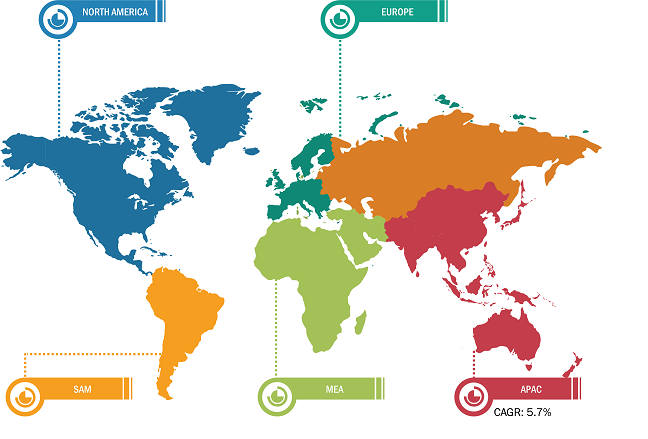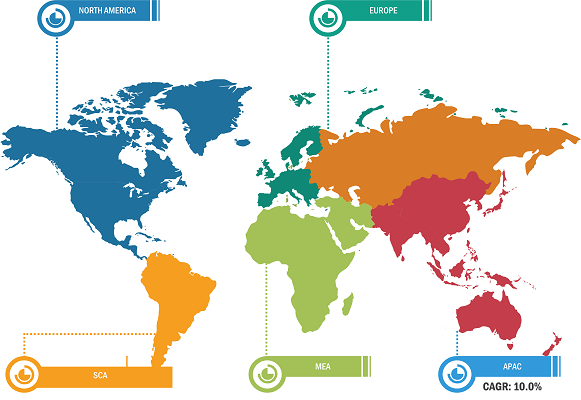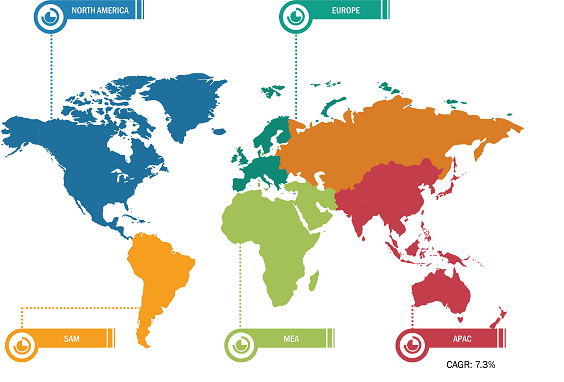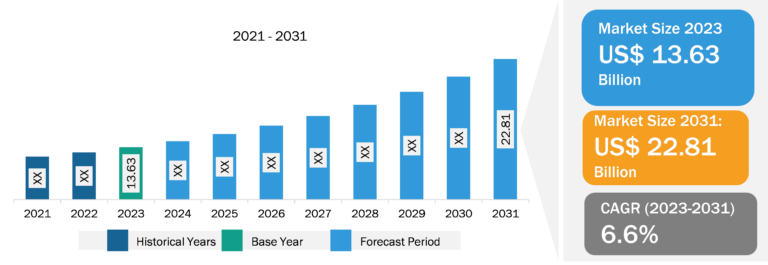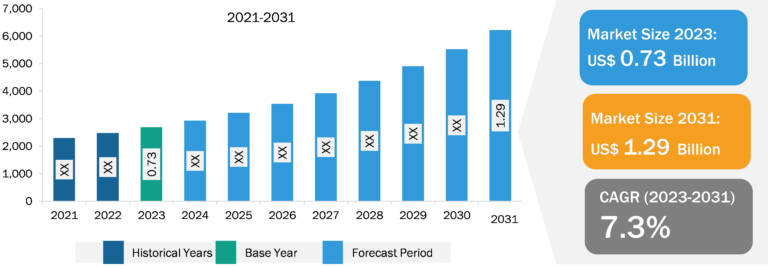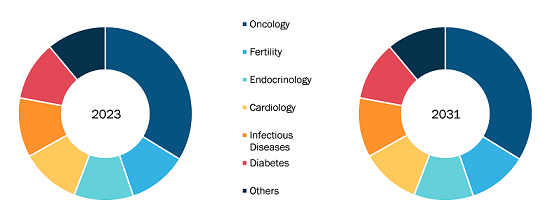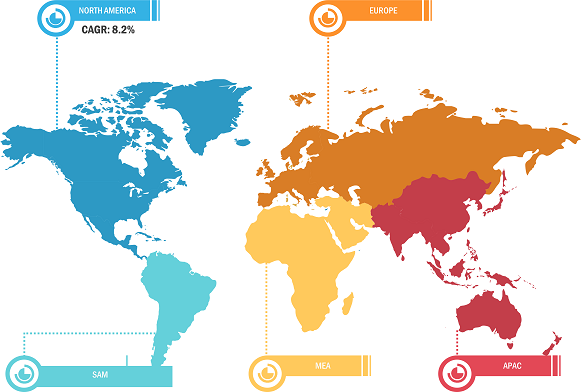
Folding Furniture Market
Asia Pacific held the largest share of the folding furniture market in 2022. Urbanization is a common factor driving the market growth in this region as the trend results in a decrease in the average living space and increases in the value of available limited space, where space-saving furniture is the most suited option. Mumbai, Kolkata, Karachi, and Shenzhen are a few of the cities in this region that hold high potential for the growth of the folding furniture market. Moreover, an increased number of youngsters in Asia Pacific countries tend to move to large cities for better opportunities. In Beijing, the average living area available per person is only 21 sq. m. Therefore, transforming furniture is the best suitable option to make living in such compact spaces convenient.
Rapid Urbanization and Growing Residential Sector Boost Folding Furniture Market Growth
The real estate sector has recently witnessed high growth with rapid urbanization, structural economic changes, and shifts in consumer living patterns. The residential sector reports diverse housing needs and changing lifestyles. As per India Brand Equity Foundation, almost US$ 6.26 billion was invested in the real estate sector in India, and the investment amount is expected to reach US$ 9.30 billion by 2040. According to the European Union, the level of urbanization in Europe is expected to increase to ∼83.7% by 2050. The growth of the residential sector, supported by positive government measures, promotes the demand for folding furniture across the world. Rapid urbanization brings about dynamic living situations, with residential spaces often serving multiple purposes. The shift in consumer spending toward better living, backed by a rise in per capita and disposable income, has augmented the folding furniture market growth.

Folding Furniture Market: Segmental Overview
Based on application, the folding furniture market is segmented into residential, commercial, and others. The residential segment held the largest market share in 2022. The trend of family gatherings and dinners in residential gardens is anticipated to propel the demand for folding furniture over the coming years. High disposable incomes, and a willingness to spend on luxury furniture and experiences also support growth of the folding furniture market for the residential segment.
Based on distribution channel, the folding furniture market is segmented into online and offline. The online segment is projected to register a higher CAGR during the forecast period. Online distribution channels reduce the operation cost of manufacturers and allow them to reach targeted customers. Further, various online portals such as Amazon offer home delivery services, secure payment options, and attractive discounts, making the buying process convenient for customers. During the COVID-19 pandemic, online retail channels gained popularity as they offered home delivery services. Hence, the convenience, availability of a vast array of products, and time management properties of online stores promote the folding furniture market growth for the online segment.
Impact of COVID-19 Pandemic on Folding Furniture Market
Various consumer goods industries faced unprecedented challenges during the COVID-19 pandemic in 2020. Moreover, folding furniture manufacturers faced significant challenges in production and distribution due to supply chain constraints caused by nationwide lockdowns, trade bans, and travel restrictions, eventually leading to price hikes. The operations and processes were halted across the globe due to the shortage of workforce and limited supply of raw materials. Many renovation projects were put on hold, and builders experienced delays in project completion. These factors negatively impacted the folding furniture market growth during pandemic. on the other hand, the COVID-19 pandemic also had a favorable impact on the folding furniture market to a certain extent. ~58% of the world’s population was forced to stay at home for a long time, which motivated customers to optimize their homes and furniture. The pandemic also highlighted the importance of reducing the reliance on imports, along with improving automation and digitalization in the industry. Moreover, Changing Lifestyle trends, such as increasing emphasis on comfort, convenience, and personalization, influenced the demand for folding furniture. Also, A shift in consumer shopping behavior was witnessed as customers transitioned to e-commerce shopping.
Folding Furniture Market: Competitive Landscape
Leggett & Platt Inc, Ashley Furniture Industries LLC, Inter IKEA Holding BV, Hussey Seating Co, Sauder Manufacturing Co, Meco Corp, Dorel Industries Inc, Maxchief Europe SL, Leisure N Pleasure SARL, and Godrej & Boyce Manufacturing Co Ltd are a few of the major players operating in the folding furniture market. Companies in this market focus on strategies such as investments in research and development activities and new product launches.

